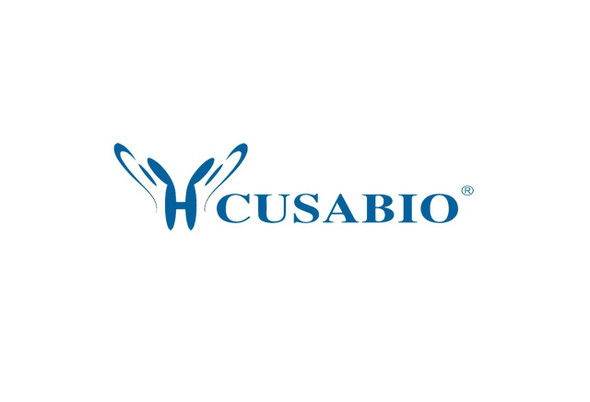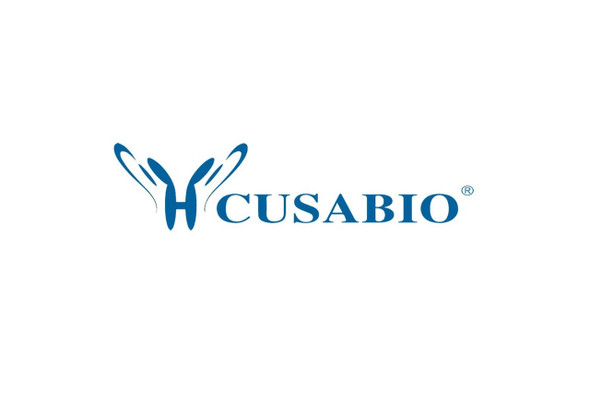Cusabio Virus & Bacteria Recombinants
Recombinant Eisenia fetida Lysenin | CSB-CF515723EJV
- SKU:
- CSB-CF515723EJV
- Availability:
- 18 - 23 Working Days
Description
Recombinant Eisenia fetida Lysenin | CSB-CF515723EJV | Cusabio
Alternative Name(s): efL1
Gene Names: N/A
Research Areas: Others
Organism: Eisenia fetida (Red wiggler worm)
AA Sequence: MSAKAAEGYEQIEVDVVAVWKEGYVYENRGSTSVDQKITITKGMKNVNSETRTVTATHSIGSTISTGDAFEIGSVEVSYSHSHEESQVSMTETEVYESKVIEHTITIPPTSKFTRWQLNADVGGADIEYMYLIDEVTPIGGTQSIPQVITSRAKIIVGRQIILGKTEIRIKHAERKEYMTVVSRKSWPAATLGHSKLFKFVLYEDWGGFRIKTLNTMYSGYEYAYSSDQGGIYFDQGTDNPKQRWAINKSLPLRHGDVVTFMNKYFTRSGLCYDDGPATNVYCLDKREDKWILEVVG
Source: in vitro E.coli expression system
Tag Info: N-terminal 10xHis-SUMO-tagged and C-terminal Myc-tagged
Expression Region: 1-297aa
Sequence Info: Full Length
MW: 53.4 kDa
Purity: Greater than 90% as determined by SDS-PAGE.
Relevance: Pore-forming toxin that specifically binds sphingomyelin in the plasma membrane of various cells. Has hemolytic activity. Is also cytotoxic to spermatozoa of some species of invertebrates and many species of vertebrates and to amphibian larvae, guinea pig polymorphonuclear leukocytes, chicken fibroblasts, normal spleen cells and various tumor cells. Is lethal for various species of reptiles, amphibian, birds and mammals. Induces smooth muscle contraction. It binds sphingomyelin and induces hemolysis in the same manner as lysenin-related protein 2, and is 10 times more effective than lysenin-related protein 1.
Reference: "Molecular cloning of cDNA for lysenin, a novel protein in the earthworm Eisenia foetida that causes contraction of rat vascular smooth muscle."Sekizawa Y., Kubo T., Kobayashi H., Nakajima T., Natori S.Gene 191:97-102(1997)
Storage: The shelf life is related to many factors, storage state, buffer ingredients, storage temperature and the stability of the protein itself. Generally, the shelf life of liquid form is 6 months at -20?/-80?. The shelf life of lyophilized form is 12 months at -20?/-80?.
Notes: Repeated freezing and thawing is not recommended. Store working aliquots at 4? for up to one week.
Function: Pore-forming toxin that specifically binds sphingomyelin in the plasma membrane of various cells. Has hemolytic activity. Is also cytotoxic to spermatozoa of some species of invertebrates and many species of vertebrates and to amphibian larvae, guinea pig polymorphonuclear leukocytes, chicken fibroblasts, normal spleen cells and various tumor cells. Is lethal for various species of reptiles, amphibian, birds and mammals. Induces smooth muscle contraction. It binds sphingomyelin and induces hemolysis in the same manner as lysenin-related protein 2, and is 10 times more effective than lysenin-related protein 1.
Involvement in disease:
Subcellular Location: Secreted, Target cell membrane
Protein Families: Lysenin family
Tissue Specificity: Expressed by coelomocytes.
Paythway:
Form: Liquid or Lyophilized powder
Buffer: If the delivery form is liquid, the default storage buffer is Tris/PBS-based buffer, 5%-50% glycerol. If the delivery form is lyophilized powder, the buffer before lyophilization is Tris/PBS-based buffer, 6% Trehalose, pH 8.0.
Reconstitution: We recommend that this vial be briefly centrifuged prior to opening to bring the contents to the bottom. Please reconstitute protein in deionized sterile water to a concentration of 0.1-1.0 mg/mL.We recommend to add 5-50% of glycerol (final concentration) and aliquot for long-term storage at -20?/-80?. Our default final concentration of glycerol is 50%. Customers could use it as reference.
Uniprot ID: O18423
HGNC Database Link: N/A
UniGene Database Link: N/A
KEGG Database Link: N/A
STRING Database Link: N/A
OMIM Database Link: N/A









